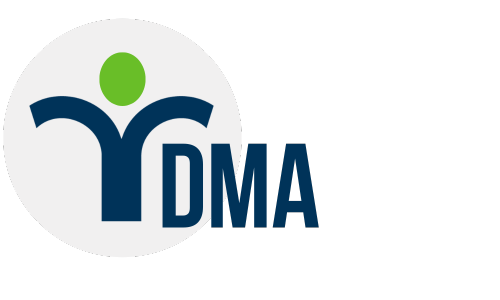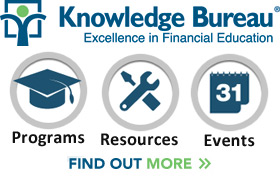
New Tax Changes for Caregivers: Alberta Budget
Alberta Finance Minister Nater Horner delivered his second consecutive deficit budget on February 26. The deficit is large at $9.4 billion, which the government attributes largely to declining oil revenues. The document is called Fiscal Plan 2026-2029 meaning that this is a three-year fiscal pan, rather than the typical one-year projection.Immigrant - How to Enable Benefits and Filing Rights
 Last month CRA posted a news release that they are making it easier for newcomers to apply for benefit and credit payments online. Unfortunately, the process is anything but easy. This presents a great opportunity for tax and financial professionals to help and in the process, start a highly valued new relationship with new Canadians.
Last month CRA posted a news release that they are making it easier for newcomers to apply for benefit and credit payments online. Unfortunately, the process is anything but easy. This presents a great opportunity for tax and financial professionals to help and in the process, start a highly valued new relationship with new Canadians.
What Sets Knowledge Bureau Apart in Online Professional Education
 When choosing an online education provider in tax, bookkeeping, or financial services, it’s important to look beyond course content alone. At Knowledge Bureau, we offer a more structured, supportive, and applied learning experience—designed to help professionals strengthen their careers and deliver measurable value to clients. Here’s how each part of the Knowledge Bureau experience supports your professional growth:
When choosing an online education provider in tax, bookkeeping, or financial services, it’s important to look beyond course content alone. At Knowledge Bureau, we offer a more structured, supportive, and applied learning experience—designed to help professionals strengthen their careers and deliver measurable value to clients. Here’s how each part of the Knowledge Bureau experience supports your professional growth:
Canada’s Most Comprehensive Tax & Financial Planning Updates: Audit Defence
 Audit activity is on the rise—and the stakes are higher than ever. With a federal target to collect $3.75 billion through increased fines and penalties, along with widespread T-slip errors and confusion around capital gains, tax audits are expected to surge in 2025.Tax and financial advisors must be prepared to respond. Join us at the CE Savvy Summit: Audit Defence on September 17 for a deep dive into the latest audit trends, case studies, and defence strategies. Learn directly from leading experts and get practical tools to better protect your clients. Register by September 10 to take advantage of early-bird rates. Special pricing available for Diploma and Team member registrations.
Audit activity is on the rise—and the stakes are higher than ever. With a federal target to collect $3.75 billion through increased fines and penalties, along with widespread T-slip errors and confusion around capital gains, tax audits are expected to surge in 2025.Tax and financial advisors must be prepared to respond. Join us at the CE Savvy Summit: Audit Defence on September 17 for a deep dive into the latest audit trends, case studies, and defence strategies. Learn directly from leading experts and get practical tools to better protect your clients. Register by September 10 to take advantage of early-bird rates. Special pricing available for Diploma and Team member registrations.
Acuity 2025: Learn, Lead, and Recharge in Puerto Vallarta
 This fall, step out of the day-to-day and into a setting designed to inspire forward thinking and fresh perspective. Join us November 23–26 in Puerto Vallarta, Mexico for the Acuity 2025 Conference for Distinguished Advisors, where leaders, educators, and advisors gather to explore what it takes to thrive in a fast-changing financial landscape. Space is limited, and flight prices are increasing. To join the experience, earn CE/CPD credits, stay ahead of critical changes, and return to your practice energized and future-focused, Acuity 2025 is your landing spot.
This fall, step out of the day-to-day and into a setting designed to inspire forward thinking and fresh perspective. Join us November 23–26 in Puerto Vallarta, Mexico for the Acuity 2025 Conference for Distinguished Advisors, where leaders, educators, and advisors gather to explore what it takes to thrive in a fast-changing financial landscape. Space is limited, and flight prices are increasing. To join the experience, earn CE/CPD credits, stay ahead of critical changes, and return to your practice energized and future-focused, Acuity 2025 is your landing spot.
Should Deposit Insurance Be Raised from $100,000?
 The Canada Deposit Insurance Corporation’s (CDIC) deposit protection is automatically applied when investors deposit money with a member bank or credit unions. The object is to protect depositors should a bank fail. The good news? There has not been a deposit insurance payout in almost 30 years. But now the framework is under review and both advisors and their clients may wish to weigh in, in particular because the deposit insurance limit is currently only $100,000 in specific deposit categories.
The Canada Deposit Insurance Corporation’s (CDIC) deposit protection is automatically applied when investors deposit money with a member bank or credit unions. The object is to protect depositors should a bank fail. The good news? There has not been a deposit insurance payout in almost 30 years. But now the framework is under review and both advisors and their clients may wish to weigh in, in particular because the deposit insurance limit is currently only $100,000 in specific deposit categories.
Tax Cheat…not me!
 The Canada Revenue Agency (CRA) is very serious about tax evasion and non-compliance and readers can expect that they will actively pursue businesses and individuals that engage in tax non-compliance, non-payment or other tax crimes in Canada and abroad, according to their new departmental plan for 2025-26.
The Canada Revenue Agency (CRA) is very serious about tax evasion and non-compliance and readers can expect that they will actively pursue businesses and individuals that engage in tax non-compliance, non-payment or other tax crimes in Canada and abroad, according to their new departmental plan for 2025-26.

